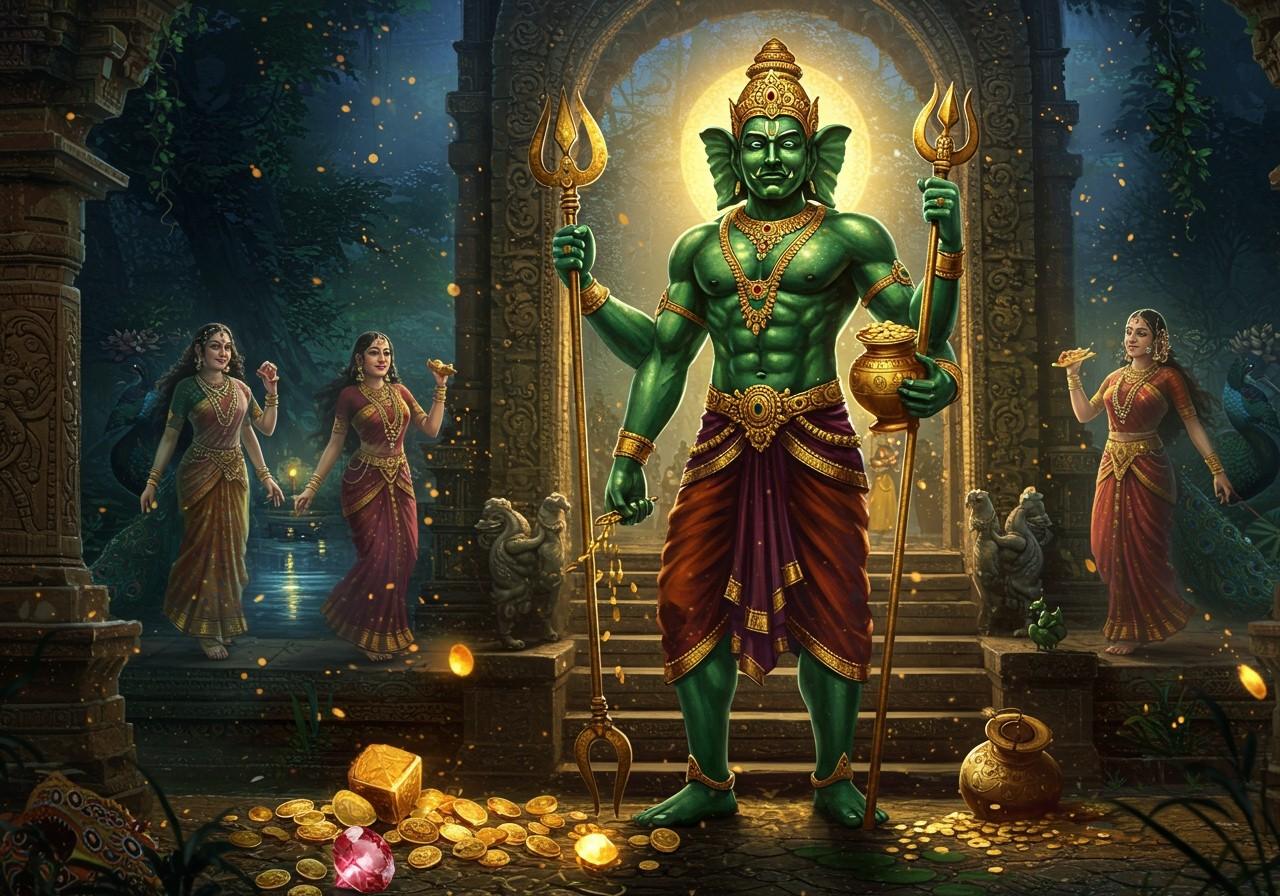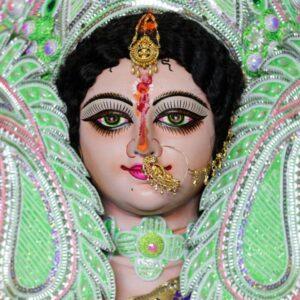
In Indian mythology, Yakshas are captivating beings, often seen as guardians of nature and hidden treasures. Delving into their significance in Hindu, Jain, and Buddhist traditions connects us with ancient narratives and our cultural heritage. Let’s explore the meaning of Yakshas and their enduring relevance in our lives today.
Meaning and Origin of Yakshas
The term “Yaksha” originates from Sanskrit, signifying “a celestial musician.” These beings are frequently portrayed as nature spirits associated with prosperity and fertility. Exhibiting a dual nature, Yakshas can be both benevolent protectors and occasionally mischievous or even malevolent. Their female counterparts, the Yakshinis, embody beauty and fertility.
Yakshas occupy a prominent place in Indian art and literature, notably in the exquisite carvings of the Ajanta and Ellora Caves. As guardians of natural resources, they maintain a profound connection to the earth. They are part of a supernatural triad, alongside Gandharvas and Kinnaras, sharing a rich mythological tapestry.
Yakshas in the Mahabharata
The epic Mahabharata features Yakshas in a significant role. One of the most renowned narratives is the “Yaksha Prashna,” involving a philosophical dialogue between Yudhishthira and a Yaksha, who is actually Yama, the god of death, in disguise. This exchange explores profound moral and ethical dilemmas.
In this story, Yudhishthira, while searching for water, encounters the Yaksha, who poses a series of challenging questions. Yudhishthira must answer wisely and righteously to prove his virtue. The “Yaksha Prashna” imparts invaluable life lessons, reflecting the eternal struggle between dharma (duty/righteousness) and adharma (non-righteousness). It emphasizes the virtues of truth, patience, and self-control.
This narrative remains a cultural and spiritual cornerstone of Indian philosophy. The teachings of the “Yaksha Prashna” have influenced Indian literature and thought for centuries, showcasing the rich moral heritage within Indian mythology.
Yakshas and Yakshinis in Various Traditions
Yakshas and Yakshinis appear throughout Hindu, Buddhist, and Jain traditions. In Hinduism, they are often associated with Kubera, the god of wealth, symbolizing prosperity as guardians of treasure. Buddhist texts portray Yakshas as benevolent protectors of the Buddha and his teachings, safeguarding the path to enlightenment. In Jain cosmology, they serve as attendants to the Tirthankaras, embodying devotion and service.
These diverse traditions highlight the dual nature of Yakshas – protectors with a wild, untamed aspect. This duality reflects cultural and regional variations across India. Their evolving imagery in temple architecture and folklore demonstrates their adaptability and enduring presence in India’s spiritual landscape.
Cultural Significance of Yakshas Today
Yakshas continue to permeate Indian culture and spirituality, symbolizing protection and prosperity in rituals and festivals. Their motifs appear in art, literature, and cinema, reflecting our cultural heritage. In contemporary media, they represent identity and tradition, inspiring connections to nature and promoting environmental consciousness. Stories of Yakshas impart moral values that resonate with modern life’s challenges.
Ancient narratives, like those of Yakshas, bridge the past with the present, offering timeless wisdom. Their rich legacy invites us to explore our cultural roots and embrace the diverse tapestry of Indian mythology.
How Poojn.in Helps You Honor Yaksha Traditions
Poojn.in, India’s largest Dashakarma bhandar, offers essential items for worshipping and honoring Yakshas, the divine nature spirits. We provide authentic ritual materials connecting you to these ancient guardians of wealth and natural treasures. For Yaksha-related rituals, we offer:
- Pure copper and brass vessels traditionally used in Yaksha worship, crafted with meticulous detail and available in various sizes.
- Natural incense and dhoop made from forest ingredients, creating a sacred atmosphere during your rituals.
- Special oil lamps (diyas) for offering light, beautifully designed and crafted for traditional ceremonies.
- Fresh flowers and garlands for decoration, adding a touch of natural beauty to your sacred space.
- Pure ghee and oil for ritual offerings, ensuring the purity and authenticity of your worship.
- Traditional bells and chimes used during prayers, enhancing the spiritual resonance of your rituals.
All items are carefully selected and verified for authenticity, ensuring your rituals maintain their sacred significance. Our products come with detailed usage instructions in multiple languages. Visit poojn.in or call our expert consultants to learn more about the correct items for your specific Yaksha-related ceremonies. We deliver across India, bringing authentic pooja items to your doorstep.
Embracing the Legacy of Yakshas
The stories and teachings of Yakshas weave a beautiful tapestry of Indian mythology. From the profound dialogues in the Mahabharata to their roles across various traditions, Yakshas offer timeless lessons. They embody protection, prosperity, and the balance between dharma and adharma.
Today, Yakshas inspire us to cherish our cultural heritage, emphasizing wisdom, patience, and truth. Engaging with these ancient tales connects us to our roots and our rich moral heritage. In art and rituals, Yakshas enrich our spiritual landscape, encouraging respect for nature and upholding timeless values. Embracing their legacy allows us to celebrate our traditions while navigating modern life.
What does Yaksha mean? Yakshas are nature spirits or deities in Hindu, Jain, and Buddhist traditions, often associated with wealth, treasure, and the natural world, serving as guardians of hidden treasures and symbols of prosperity.
Who is the Yaksha in the Mahabharata? In the Mahabharata, the Yaksha is Yama, the god of death, who tests Yudhishthira’s wisdom with profound questions, highlighting the importance of dharma.
Who are Yaksha and Yakshini? Yaksha is the male nature spirit, while Yakshini is the female counterpart. Both are considered guardians of treasures within the earth, symbolizing abundance and prosperity.
What is the significance of Yakshas in Hindu mythology? Yakshas protect the natural world and are often depicted as benevolent guardians of treasures and sacred places, embodying the connection between the divine and nature.
Are Yakshas considered gods? Yakshas are not full deities but semi-divine beings or nature spirits holding an important place in the celestial hierarchy.
What stories involve Yakshas in ancient texts? Many ancient texts, including the Mahabharata and various Puranas, feature Yakshas, often highlighting their wisdom, power, and role as guardians, reflecting their significance in Indian mythology.
Why are Yakshas associated with wealth? Yakshas are linked to wealth because they guard hidden treasures within the earth, symbolizing abundance, prosperity, and the rewards of righteous conduct.
How are Yakshas depicted in art and literature? Yakshas are typically portrayed as robust and friendly figures, sometimes with animalistic features, symbolizing their connection to nature and their role as guardians of the natural world.
Explore our collection of sacred items at poojn.in, where you’ll find everything you need to honor these fascinating beings.

